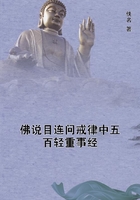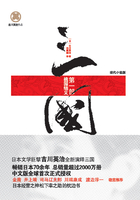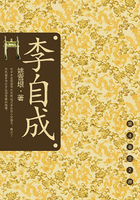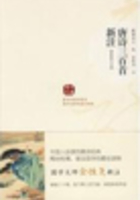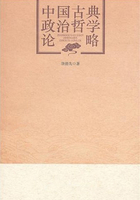PERCY HEMINGWAY
IAT THE PARADISO
The Cafe Paradiso was full of people, for the inhabitants of Alexandria had dined, and the opera season was over. The seats at every table were occupied, and the fumes of smoke from a hundred cigars partly hid the ladies of the orchestra. As the waiters pushed aside the swing-doors of the buffet and staggered into the salon with whisky, absinthe, and coffee, the click of billiard-balls was heard.
The windows facing the sea were wide open, for the heat was intense, and the murmur of the waves mingled with the plaintive voices of the violins.
Seated by a table at the far end of the hall, Gregorio Livadas hummed softly an accompaniment to Suppe's "Poete et Paysan," puffing from time to time a cloudlet of blue smoke from his mouth. When the music ceased he joined in the applause, leaning back happily in his chair as the musicians prepared to repeat the last movement. Meanwhile his eyes wandered idly over the faces of his neighbors.
When the last chord was struck he saw the women hurry down from the platform and rush toward the tables where their acquaintances sat. He heard them demand beer and coffee, and they drank eagerly, for fiddling in that heat was thirsty work. He watched the weary waiters hastening from table to table, and he heard the voices around him grow more animated and the laughter more frequent. One man was fastening a spray of flowers on the ample bosom of the flautiste, while another sipped the brown lager from the glass of the big drum, and the old wife of the conductor left her triangle and cymbals to beg some roses from an Arab flower-girl. Truly the world was enjoying itself, and Gregorio smiled dreamily, for the sight of so much gaiety pleased him.
He wished one of the women would come and talk to him; he would have liked to chat with the fair-haired girl who played the first violin so well. He began to wonder why she preferred that ugly Englishman with his red face and bald head. He caught snatches of their conversation.
Bah! how uninteresting it was! for they could barely understand each other. What pleasure did she find in listening to his bad French? and in her native Hungarian he could not even say, "I love." Why had she not come to him, Gregorio Livadas, who could talk to her well and would not mumble like an idiot and look red and uncomfortable! Then he saw she was drinking champagne, and he sighed. Ah, yes, these English were rich, and women only cared for money; they were unable to give up their luxuries for the sake of a man.
But at this thought Gregorio blushed a little. After all, there was one woman--the only woman he ought to think of--who was not afraid of hardship for the sake of her husband. He tried to excuse himself by arguing that the music had excited him; but he felt a little ashamed, and as a sop to his not yet quite murdered conscience got up and left the cafe.
When he turned into the Place Mehemet Ali he remembered suddenly that he had wasted his evening. It was ten o'clock, too late to set about the business he had intended. He was angry with himself now as well as ashamed. He wandered up and down the square, looking at the statue of the great khedive, silhouetted against the moonlight, and cursed at his misfortunes.
Why should he, Gregorio Livadas, be in need of money? He had worked hard, but without success. He could have borne his ill luck had he alone been the sufferer, but he must consider his child--and, of course, his wife too. He was really fond of his wife in a way. But he smiled proudly as he thought of his son, for whom he schemed out a great future. He and Xantippe would train the boy so carefully that he would grow up to be a great man, and, what was more, a rich man. How they would laugh, all three, as they sat in the splendid cafes over their wine, at the hardships the father had endured! Still he must not forget the present, and he sorely needed money. He would go to Amos again. Amos was a rich man, very rich, and a filthy Jew. Amos could easily spare him some money and renew the last loan. He was going to be successful now and would be able to pay good interest. What better investment could Amos have? Surely none. He was going to set up a cafe with the money at Tanta, or Zagazig, or even Benhur,--yes, Benhur was the best,--where there were few competitors. Then he would make a fortune, as other Greeks had done, and Amos would be paid in full. He was not extravagant, no; he had the business instincts of his race.
Half these rich merchants of Alexandria had begun as he would begin;he would succeed as they had succeeded. The future was really hopeful, if he could only borrow a little capital.
With these thoughts surging through his brain Gregorio paced up and down the pavements. At last he turned into the Rue des Soeurs and started slowly toward his home.
This street, the sink of Alexandria, was at its gayest. The cafes where cheap liquor is sold were crowded. Soldiers and sailors, natives and the riffraff of half a dozen nations, jostled one another. The twanging of guitars and the tinkling of pianos was heard from every house. Women, underclothed and overpainted, leaned from the upper windows and made frequent sallies into the street to capture their prey. Loud voices sang lusty English choruses and French chansonnettes, and Neapolitan songs tried to assert themselves whenever the uproar ceased for a moment. Every one talked his, or her, own tongue, and gesture filled in the gaps when words were wanting.
All seemed determined to degrade themselves as much as possible, and nearly every one seemed supremely happy.
Occasionally there was a fight, and knives were used with unerring skill; but the mounted police who patrolled the streets, though overtaxed, managed to preserve a certain amount of order.



